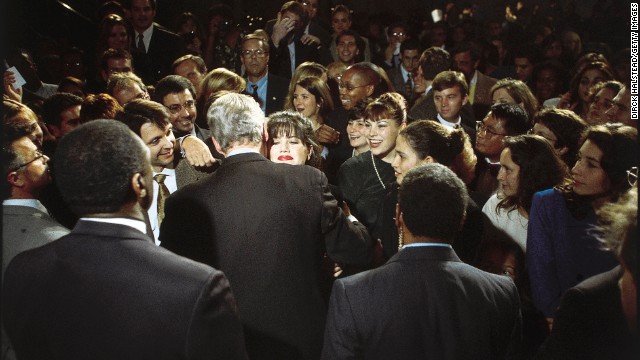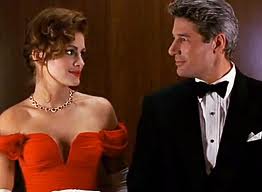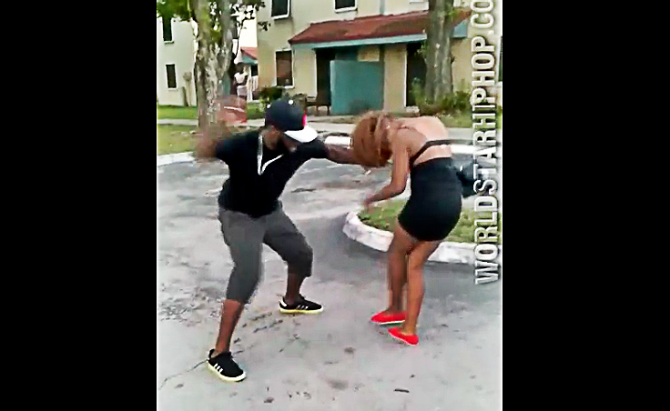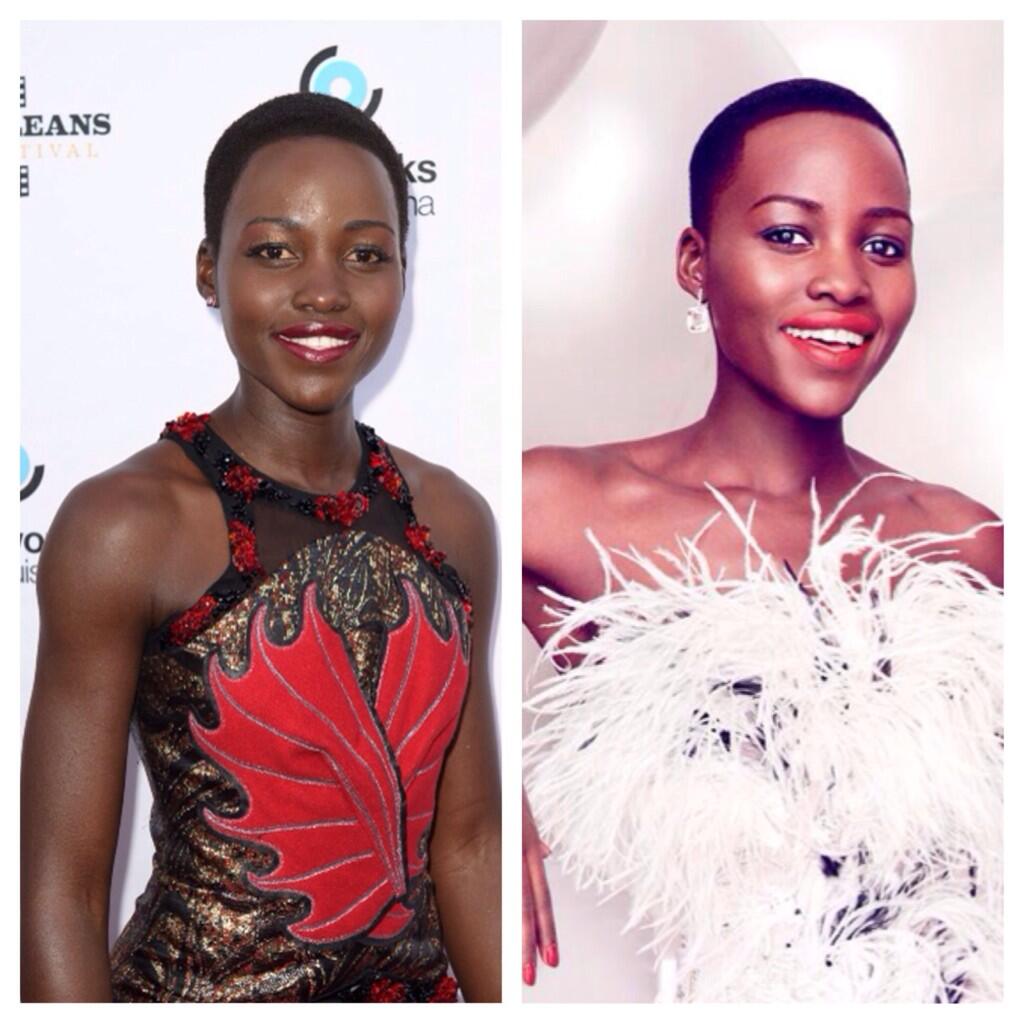I’m a nerd and a journalist. Even if I were not the latter, I would still be the former, and that means even I was not writing this story for publication, I still would have cut my Wednesday night short to sitnot-so-patiently until midnight with my iPhone, waiting for Vanity Fair to digitally release the full (and exclusive) Monica Lewinsky essay, ”Shame and Survival”, the one it had been promoting since the beginning of the week. I bought a year-long Vanity Fair subscription and downloaded the app to my phone just for the occasion. See, I told you. Nerd.
16 years after an infamous and captivating White House scandal, Lewinsky’s name is still spoken of with derision and/or followed by laughter. And she’s still a fascinating… well, “character” in the way that people who are in the public eye morph from being human. (In the essay, Lewinsky points out, “I’m actually a person” because we do need a reminder.) The popularity of her return to the spotlight—and the inherent drama that comes with it—is a bit like your favorite show getting a reunion several years after it’s off the air. It’s not going to be the same and, it will probably cheesy, but you were so invested the first go round, you pay attention for nostalgia’s sake, to laugh at the inevitable bloopers and get some behind-the-scenes insight of what once really mattered to you.
Let me explain exactly what I mean by invested.
There was no escaping the scandal, if you were moderately tuned into the news or pop culture, but it was especially in your face if you were from DC, Maryland or Virginia as most of the students at my college, The University of Maryland, College Park, were. Most of our parents had government jobs, and even if they weren’t directly related to the White House, politics drives the DC-Metro area Inside and Outside of the Beltway the way film drives LA and finance, fashion and entertainment drivel New York. Even if you’re not involved in it, you just happen to know a lot about the inner workings by mere proximity. Everybody knows somebody who knows somebody who works in, near or around the White House. Everyone was talking about it.
I was at the lobby of a car wash once at the height of the Clinton-Lewinsky, watching and waiting alongside a mom and daughter, maybe 3, as a team of men towel-dried my vehicle. The little Black girl pointed to a rack of newspapers at her eye-level. It doesn’t matter which paper it was because they all carried the same cover story and had for weeks. In her high-pitched three-year-old voice, she said to her Mom, “ That's Monica Lewinsky?” She pronounced the name perfectly.
As a senior in college, my roommate and I would regularly rush from the cafeteria in time to see the latest brawl on Springer, and that was usually followed by watching then-President Bill Clinton’s televised grand jury testimony over and over and over, listening to prosecutors ask the Leader of the Free World if he ever touched Lewinsky's breast or genitalia, if he ever used a cigar in a sexual manner (!) Clinton squirmed and blinked profusely (and hilariously), giving away his lie. This—and the Real World, which we probably would have watched if the dorms had cable— was the 1998 version of reality TV. And probably also because we didn’t have cable, we watched that VHS tape over and over and over, hanging on every salacious detail.
Vanity Fair’s Lewinsky essay doesn’t disappoint, even if she’s more candid than salacious. And for a woman that’s spent the better part of her adult life being derided and insulted, she’s surprisingly quite likable. She doesn’t ask for any sympathy and takes accountability for her actions, which she’s suffered greatly – and unfairly for. Lewinsky, now 40, screwed up royally beginning when she was 21, and she’s paid for it daily since. It seems she’s tried very hard to move on—much like the Clintons have—but has still been, as she puts it, “stuck.” By the end of the essay, I had a lot of sympathy for her, surely the intended point.
Anyway, in case you’re not a nerd like me or just not willing to plunk down $20 for a Vanity Fair subscription, I offer you the 5 Most Fascinating Revelations from Lewinsky’s personal essay (that weren’t included in the previously released excerpts):
1. She Didn’t See A Scandal Coming
It seems an impossible perception that a woman could think she could have an affair with the President of the United States and it would never come to light, but we’re also skewed by the 20/20 perception of hindsight. Lewinsky didn’t have that luxury.
“In my early 20s, I was too young to understand the real-life consequences, and too young to see that I would be sacrificed for political expediency,” she writes.” I look back now, shake my head in disbelief, and wonder: what was I—what were we— thinking?”
2. It Wasn’t Just Sex with Clinton
The Lewinsky-Clinton scandal took place 16 years ago. Other than a passing mention in Beyonce’s “Partition’ or the time R. Kelly and Lady Gaga decided to act out the Lewinsky and Clinton’s Oval Office shenanigans at the American Music Awards, I haven’t thought about her much. The details I recall are the scandalous ones, of course—the stained dress, the cigar. But Lewinsky says there was more to the relationship with Clinton.
“I. Myself. Deeply. Regret. What. Happened,” she writes. “At the times—a least from my point of view— it was an authentic connection, with emotional intimacy, frequent visits, plans made, phone calls and gifts exchanged.”
3. She Googles Herself
This counts as bravery, as far as I’m concerned. I’ve done one season of reality TV and even I don’t Google myself because of the horrible things people write on the Internet. You have no idea (or maybe you do, because sometimes they’re in the comments section here.) And I have no sex scandal to speak of. Still, she looks, usually when she gets a call from her doorman that the paparazzi have shown up at her building. She Googles to find out what she’s in the news for this time.
Lewinsky provides a “snapshot of a scenario she’s grown all too accustomed to”, most recently when a conservative website unearthed exchanges between Hillary Clinton and a close friend, that mentioned Lewinsky.
“My heart sinks,” she writes. “I know what this means. Whatever day I’ve planned has been jettisoned To leave the house – and risk a photo— only ensures that the story will stay alive.”
Read more on The Root







